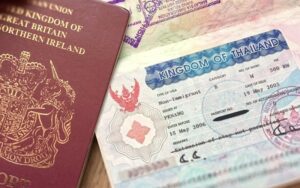Thailand has long been recognized as one of Southeast Asia’s most dynamic economies, with a strategic location, strong infrastructure, and an investor-friendly environment. For American businesses, Thailand offers a particularly unique advantage through the Treaty of Amity and Economic Relations between the United States and Thailand, commonly referred to as the US-Thai Treaty of Amity. Signed in 1966, this bilateral agreement grants US companies special rights and privileges that are not available to most other foreign investors.
The treaty not only strengthens the long-standing diplomatic ties between Thailand and the United States but also enhances cross-border trade, investment, and business cooperation. Understanding its provisions is essential for any American entrepreneur, corporation, or investor looking to establish or expand operations in Thailand.
Historical Background of the Treaty
The Treaty of Amity was signed on May 29, 1966 and came into effect on June 8, 1966. Its purpose was to cement the friendly relations between the two countries while promoting greater economic collaboration.
At the time, Thailand was modernizing its economy and looking to attract foreign investment, while the US sought to expand its presence in Asia during the Cold War era. The treaty granted American businesses special advantages, effectively placing them on an equal footing with Thai companies in many areas of economic activity.
Today, the Treaty of Amity remains one of the cornerstones of US-Thai economic relations, continuing to provide American investors with benefits that investors from other countries cannot access under standard Thai foreign investment laws.
Key Provisions of the Treaty
The US-Thai Treaty of Amity sets out specific rights and protections for US nationals and companies. Its major provisions include:
1. National Treatment
US citizens and companies are granted the right to operate businesses in Thailand with the same privileges as Thai nationals. This principle of “national treatment” means that American-owned businesses are exempt from most restrictions imposed on other foreigners.
2. 100% Foreign Ownership
Under Thai law, foreign investors are generally restricted from holding more than 49% of shares in a Thai company unless they obtain a special license. However, the Treaty allows US companies to establish entities in Thailand that are wholly owned by Americans, without the need for a majority Thai partner.
3. Right to Engage in Various Sectors
American companies under the Treaty can engage in a wide range of business activities, including service, manufacturing, and trading sectors. However, certain restricted industries remain off-limits (see below).
4. Exemption from Most Restrictions Under the Foreign Business Act (FBA)
Thailand’s Foreign Business Act of 1999 imposes limitations on foreign participation in specific industries. The Treaty of Amity exempts American companies from most of these restrictions, giving them a significant competitive advantage compared to investors from other countries.
Limitations of the Treaty
While the Treaty of Amity provides broad rights, it does impose some limitations. US companies cannot participate in the following restricted sectors:
-
Land Ownership: American businesses are not permitted to own land in Thailand (though they may lease property long-term).
-
Communications: Certain areas of telecommunications and media are off-limits.
-
Transportation: Domestic transportation businesses are restricted.
-
Banking and Insurance: Specific financial services require separate approval.
-
Natural Resources: Exploitation of natural resources, such as forestry, mining, and fisheries, is prohibited.
These restrictions are consistent with Thailand’s general policies on protecting national security, culture, and strategic industries.
Benefits of the Treaty for American Investors
The Treaty of Amity offers several tangible benefits that make Thailand an attractive destination for US businesses:
1. Full Control of Business Operations
American companies can establish entities with 100% ownership, allowing them to retain full control over management, strategy, and profits.
2. Reduced Bureaucratic Hurdles
Since the Treaty exempts American businesses from many restrictions under the Foreign Business Act, the process of establishing a business is often faster and less complicated.
3. Level Playing Field
By granting “national treatment,” the Treaty ensures that US companies compete on equal footing with Thai companies, giving them access to the same legal protections and incentives.
4. Market Access in ASEAN
Thailand serves as a gateway to the broader ASEAN Economic Community (AEC). By setting up in Thailand under the Treaty, American businesses can tap into regional supply chains and a market of over 600 million people.
5. Long-Term Security
The Treaty provides a stable and predictable framework for investment, reassuring American companies that their rights are protected under international law.
Process of Establishing a US Treaty Company in Thailand
To take advantage of the Treaty, American businesses must follow a specific process:
-
Register a Thai Company
-
The entity must be incorporated under Thai law, with at least one shareholder of American nationality.
-
-
Apply for Treaty Certification
-
The company must obtain certification from the US Commercial Service at the US Embassy in Bangkok, confirming that it qualifies as a US company.
-
-
Apply for a Foreign Business Certificate
-
The certified company must then apply to the Thai Ministry of Commerce for a Foreign Business Certificate, which formally allows it to operate under Treaty privileges.
-
-
Commence Operations
-
Once approved, the company can legally operate in Thailand with 100% American ownership in permitted sectors.
-
This process can take several months, but once completed, it provides long-term benefits for US investors.
Practical Considerations for US Businesses
While the Treaty offers clear advantages, American investors should keep in mind the following considerations:
-
Compliance with Thai Laws: Treaty companies must still comply with Thai corporate, tax, and labor laws.
-
Visa and Work Permits: Foreign directors and employees require proper visas and work permits.
-
Capital Requirements: Minimum registered capital requirements may apply depending on the type of business.
-
Local Partnerships: While not legally required, forming relationships with Thai partners may enhance market success.
-
Sector-Specific Regulations: Certain industries (e.g., finance, healthcare, or telecommunications) require additional approvals.
Strategic Importance of the Treaty
The US-Thai Treaty of Amity is more than just a business agreement; it is a symbol of the long-standing diplomatic relationship between the two countries. For the US, it ensures that American businesses retain a unique edge in Thailand, a critical hub for trade and investment in Southeast Asia. For Thailand, the Treaty encourages inflows of American investment, technology transfer, and business expertise, contributing to economic development.
Conclusion
The US-Thai Treaty of Amity remains one of the most significant bilateral agreements in Southeast Asia, offering American investors unique rights that are unavailable to most other foreign nationals. By granting US companies the ability to own and operate businesses in Thailand with the same privileges as Thai nationals, the Treaty fosters economic growth, strengthens bilateral ties, and enhances trade and investment opportunities.
For American entrepreneurs and corporations, understanding and leveraging the Treaty can open doors to long-term success in Thailand’s dynamic economy. However, while the Treaty provides a powerful framework, proper planning, compliance with Thai law, and local business knowledge are essential to fully maximize its benefits.






















